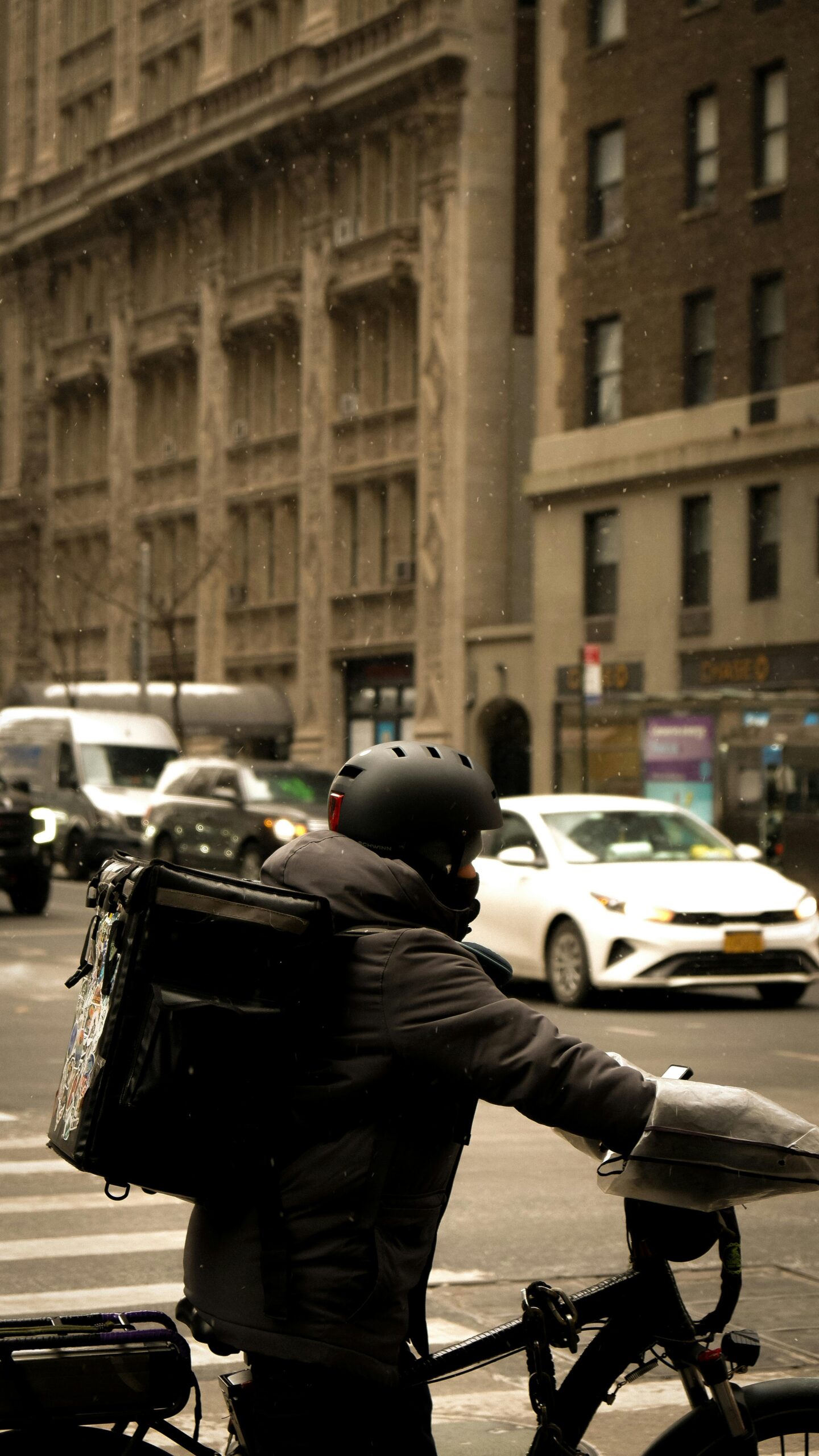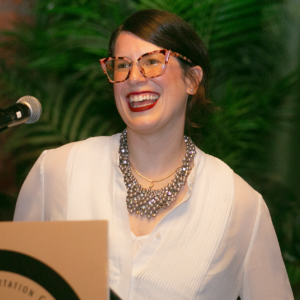Thank you for the opportunity to testify. My name is Jaqi Cohen and I am the Director of Climate and Equity Policy for Tri-State Transportation Campaign, an advocacy organization dedicated to advocating for sustainable, equitable, and safer mobility in New York, New Jersey, and Connecticut since 1993.
NYSDOT Capital Plan Transparency and Highway Expansion Concerns
NYSDOT is failing New Yorkers because of archaic policies that favor funding highway expansions over making all transportation choices more accessible and affordable. A recent report by the Brookings Institute ranks NYS’ DOT at 49 out of 50 — coming in just ahead of Alabama — based on scoring criteria that assess the department’s long-term planning, project selection, local collaboration and public involvement.
Of particular concern is that 53% of the five-year capital plan is dedicated to roads and bridges without clear climate criteria. While we appreciate the inclusion of $75 million for “reconnecting communities” projects, this program needs a clearer focus on non-car alternatives. We are especially concerned about the potential inclusion of funding for the Cross Bronx Expressway expansion program within this allocation. NYSDOT is allocating billions of dollars to widen urban highways in the state, specifically along the Cross Bronx Expressway in the Bronx, Van Wyck Expressway in Queens, and Route 17 in Sullivan County.
Highway widenings like these have been shown to worsen air and water quality, exacerbate flood risk, and accelerate climate change through increased driving. NYSDOT must be held accountable to offset these impacts with projects that reduce driving, such as transit improvements, bicycle and pedestrian safety projects, and zoning for transit-oriented development. In particular, the threat from the incoming Federal administration to eliminate pro-climate, pro-equity, and pro-safety discretionary grants may require NYSDOT to reallocate formula funding dollars to those project areas.
Lastly, we have serious concerns about the lack of transparency and clear prioritization in NYSDOT’s $34.1 billion capital plan. Despite Executive Order 95 of 2013 requiring open data practices, the 2022-2027 NYSDOT Capital Plan project list has still not been released on data.ny.gov. This lack of transparency makes it impossible for the public to fully understand how these substantial public funds are being allocated.
Tri-State Transportation Campaign recommends:
- Immediate release of the complete NYSDOT capital plan project list on data.ny.gov.
- Establishment of clear criteria prioritizing maintenance over expansion in all highway spending;
- Passage of S.4044/A.4243 which would require NYSDOT to account for the anticipated increase in vehicle miles traveled (VMT) associated with approved highway widenings, and allocate funding to projects which would offset that increased VMT, with the goal to reduce overall VMT 20% by 2050, in line with the Climate Leadership and Community Protection Act (CLCPA).
- Required climate impact analysis for all transportation projects over $1 million.
- Reallocation of Cross Bronx Expressway expansion funding toward community-centered solutions that do not increase vehicle capacity.
- Systematically distribute more formula funding dollars from highway projects to transit, bicycle, and pedestrian projects.
MTA Capital Plan Funding Crisis
We are deeply concerned about the $35.7 billion funding gap in the MTA’s 2025-29 Capital Plan. The state cannot afford to wait until the final MTA Capital Plan is approved to address this massive shortfall. Additionally, the current paratransit funding structure places a disproportionate burden on New York City, requiring an 80-20 split for Access-A-Ride funding. This arrangement is inequitable and unsustainable.
Tri-State Transportation Campaign recommends:
- Creation of new dedicated revenue sources for the MTA capital program before the 2025-29 plan is finalized.
- Restructuring of the paratransit funding formula to achieve a more equitable cost-sharing arrangement between the state and city.
Climate and Electrification Funding
The Executive Budget falls far short of meeting New York’s climate commitments in the transportation sector. The $20 million allocation for electric transit buses is insufficient to meet the scale of transformation needed. Medium and heavy-duty vehicles are responsible for approximately 24% of all greenhouse gas emissions from the on-road vehicle fleet, yet the budget includes no comprehensive strategy for their electrification. The complete absence of dedicated funding for school bus electrification is particularly concerning given approaching statutory deadlines.
Tri-State Transportation Campaign recommends:
- Increasing electric transit bus funding to at least $100 million annually
- Creating a comprehensive medium/heavy-duty vehicle electrification program with dedicated funding
- Establishing a school bus electrification fund to help districts meet statutory requirements
Safe Streets and Transportation Equity
We strongly oppose the e-bike reclassification proposed in the TED Article 7 bill. This change would have severe negative impacts on delivery workers and other essential workers who rely on e-bikes for their livelihoods. Real safety is achieved through proven safety countermeasures and the Safe System Approach. The complete absence of dedicated funding for Vision Zero initiatives is unacceptable given the continuing crisis of traffic fatalities on our roads. New York City brought Vision Zero to the US, but New Jersey has eaten our lunch in implementing it at the county level, and is now establishing a statewide action plan. New York needs to catch up.
Tri-State Transportation Campaign recommends:
- Removing the proposed e-bike reclassification from Article 7 bill S3008/A3008
- Developing a comprehensive e-bike safety and infrastructure program that supports rather than penalizes essential workers.
- Establishing a multi-agency statewide Vision Zero action plan to eliminate fatalities and serious injuries on roadways in the state by 2040

